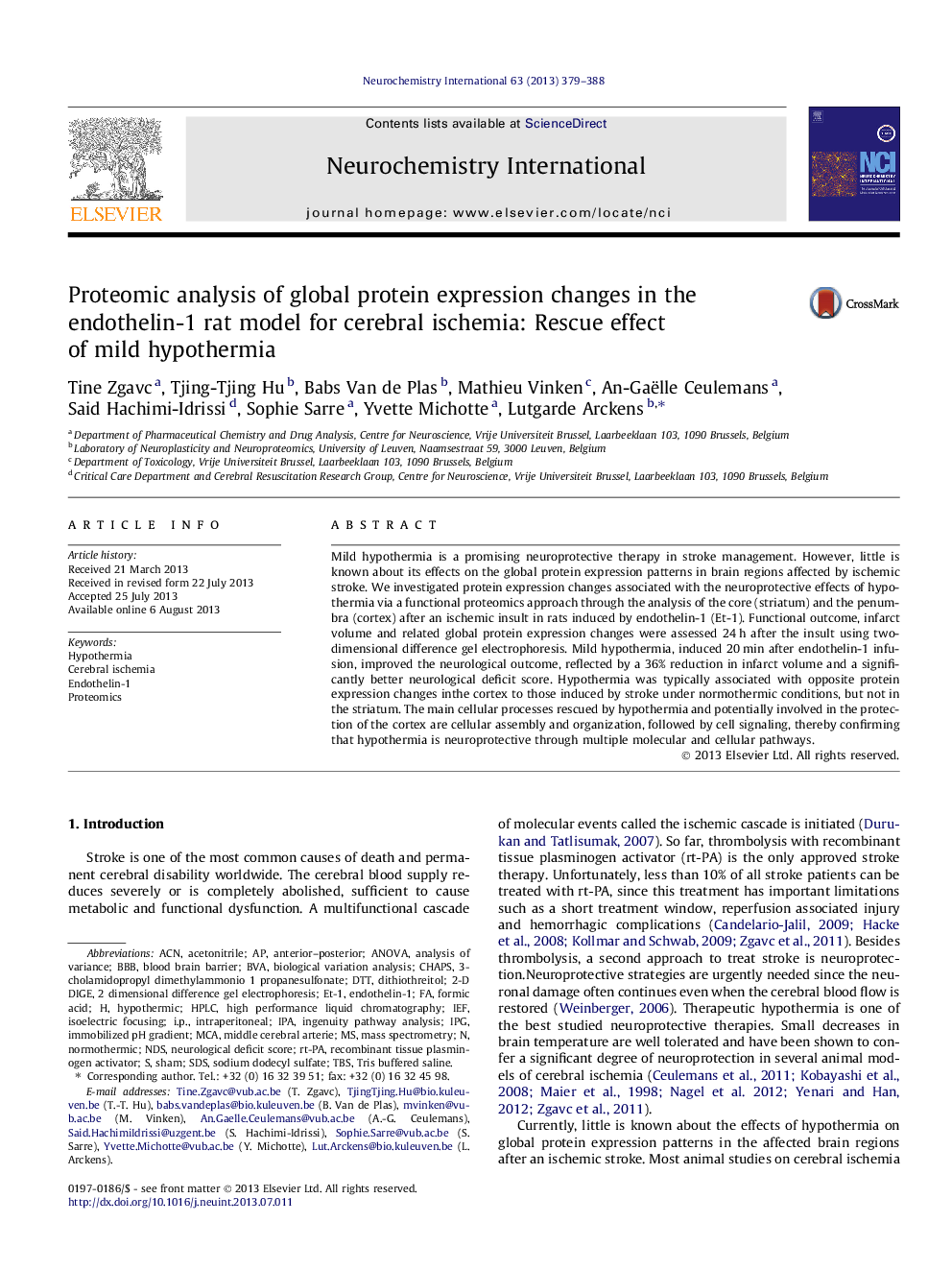| Article ID | Journal | Published Year | Pages | File Type |
|---|---|---|---|---|
| 10958175 | Neurochemistry International | 2013 | 10 Pages |
Abstract
Mild hypothermia is a promising neuroprotective therapy in stroke management. However, little is known about its effects on the global protein expression patterns in brain regions affected by ischemic stroke. We investigated protein expression changes associated with the neuroprotective effects of hypothermia via a functional proteomics approach through the analysis of the core (striatum) and the penumbra (cortex) after an ischemic insult in rats induced by endothelin-1 (Et-1). Functional outcome, infarct volume and related global protein expression changes were assessed 24Â h after the insult using two-dimensional difference gel electrophoresis. Mild hypothermia, induced 20Â min after endothelin-1 infusion, improved the neurological outcome, reflected by a 36% reduction in infarct volume and a significantly better neurological deficit score. Hypothermia was typically associated with opposite protein expression changes inthe cortex to those induced by stroke under normothermic conditions, but not in the striatum. The main cellular processes rescued by hypothermia and potentially involved in the protection of the cortex are cellular assembly and organization, followed by cell signaling, thereby confirming that hypothermia is neuroprotective through multiple molecular and cellular pathways.
Keywords
BVAIPAMCAET-1SDSNDSIEFi.p.TBSDTTACN2-D DIGEIPGimmobilized pH gradientrt-PAAcetonitrileFormic acidendothelin-1Cerebral ischemiabiological variation analysisIngenuity Pathway Analysisanalysis of varianceANOVATris buffered salineisoelectric focusingintraperitonealdithiothreitolBBBblood brain barriersodium dodecyl sulfateShamMass spectrometryRecombinant tissue plasminogen activatoranterior–posteriorNeurological deficit scoreNormothermicHypothermiaHypothermicProteomicsCHAPShigh performance liquid chromatographyHPLC
Related Topics
Life Sciences
Biochemistry, Genetics and Molecular Biology
Cell Biology
Authors
Tine Zgavc, Tjing-Tjing Hu, Babs Van de Plas, Mathieu Vinken, An-Gaëlle Ceulemans, Said Hachimi-Idrissi, Sophie Sarre, Yvette Michotte, Lutgarde Arckens,
